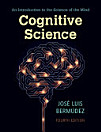Thinking without Words
ມ.ນ. 2003 · Oxford University Press
5,0star
1 ຄຳຕິຊົມreport
ປຶ້ມອີບຸກ
240
ໜ້າ
family_home
ມີສິດ
info
reportບໍ່ໄດ້ຢັ້ງຢືນການຈັດອັນດັບ ແລະ ຄຳຕິຊົມ ສຶກສາເພີ່ມເຕີມ
ກ່ຽວກັບປຶ້ມ e-book ນີ້
Thinking without Words provides a challenging new theory of the nature of non-linguistic thought. Many scientific disciplines treat non-linguistic creatures as thinkers, explaining their behavior in terms of their thoughts about themselves and about the environment. But this theorizing has proceeded without any clear account of the types of thinking available to non-linguistic creatures. One consequence of this is that ascriptions of thoughts to non-linguistic creatures have frequently been held to be metaphorical and not to be taken at face value. Bermúdez offers a conceptual framework for treating human infants and non-human animals as genuine thinkers. Whereas existing discussions of thought at the non-linguistic level have concentrated on how such thoughts might be physically realized, Bermúdez approaches the problem by considering what is required in explaining behavior in psychological terms. In developing a positive account of non-linguistic thought he shows how the experimental tools used by developmental psychologists and students of animal behavior can be used to give a precise account of the way in which a human infant or non-human animal is representing the world. Much of the book is devoted to exploring the differences between thinking without words and language-based thinking. Bermúdez argues that there are clear limits to the expressive power of non-linguistic thought. Nonetheless, he identifies primitive analogues at the non-linguistic level that can be used to explain sophisticated non-linguistic behaviors. Thinking Without Words is the first full-length philosophical study of this important topic. It is written with an interdisciplinary readership in mind and will appeal to philosophers, psychologists, and students of animal behavior.
ການຈັດອັນດັບ ແລະ ຄຳຕິຊົມ
5,0
1 ຄຳຕິຊົມ
ກ່ຽວກັບຜູ້ຂຽນ
Jose Luis Bermudez is Professor of Philosophy at Washington University in St. Louis.
ໃຫ້ຄະແນນ e-book ນີ້
ບອກພວກເຮົາວ່າທ່ານຄິດແນວໃດ.
ອ່ານຂໍ້ມູນຂ່າວສານ
ສະມາດໂຟນ ແລະ ແທັບເລັດ
ຕິດຕັ້ງ ແອັບ Google Play Books ສຳລັບ Android ແລະ iPad/iPhone. ມັນຊິ້ງຂໍ້ມູນໂດຍອັດຕະໂນມັດກັບບັນຊີຂອງທ່ານ ແລະ ອະນຸຍາດໃຫ້ທ່ານອ່ານທາງອອນລາຍ ຫຼື ແບບອອບລາຍໄດ້ ບໍ່ວ່າທ່ານຈະຢູ່ໃສ.
ແລັບທັອບ ແລະ ຄອມພິວເຕີ
ທ່ານສາມາດຟັງປຶ້ມສຽງທີ່ຊື້ໃນ Google Play ໂດຍໃຊ້ໂປຣແກຣມທ່ອງເວັບຂອງຄອມພິວເຕີຂອງທ່ານໄດ້.
eReaders ແລະອຸປະກອນອື່ນໆ
ເພື່ອອ່ານໃນອຸປະກອນ e-ink ເຊັ່ນ: Kobo eReader, ທ່ານຈຳເປັນຕ້ອງດາວໂຫຼດໄຟລ໌ ແລະ ໂອນຍ້າຍມັນໄປໃສ່ອຸປະກອນຂອງທ່ານກ່ອນ. ປະຕິບັດຕາມຄຳແນະນຳລະອຽດຂອງ ສູນຊ່ວຍເຫຼືອ ເພື່ອໂອນຍ້າຍໄຟລ໌ໄໃສ່ eReader ທີ່ຮອງຮັບ.







